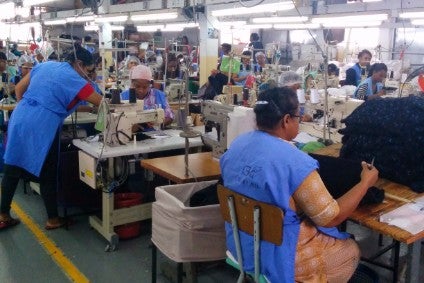
A tool to enable greater traceability in garment supply chains is being developed by the UN Economic Commission for Europe (UNECE), the European Commission (EC), the International Labour Organization (ILO), the International Trade Centre (ITC) and private sector partners.
The announcement was made at the Organisation for Economic Co-operation and Development (OECD) Due Diligence Forum and is part of efforts to advance sustainable production in line with Sustainable Development Goal 12 (SDG12) concerning responsible consumption and production.

Discover B2B Marketing That Performs
Combine business intelligence and editorial excellence to reach engaged professionals across 36 leading media platforms.
A survey of 100 global brands and retailers carried out by the UNECE found more than 65% of companies believe traceability helps build trust with consumers; develop more solid networks with clients and suppliers, and identify opportunities for efficient and sustainable management of resources.
Despite this, only 34% of companies have traceability systems in place.
The Decent Work and Transparency and Traceability Tool aims to help the apparel sector make risk-informed decisions and operate according to a set of internationally agreed practices, ultimately gearing them for more responsible production and consumption patterns.
The tool will include a Policy Recommendation, to enable governments to advance the necessary policy approaches, and a comprehensive Technical Global Standard for the Traceability of Sustainable Value Chains in the sector, covering the entire life-cycle of products.

US Tariffs are shifting - will you react or anticipate?
Don’t let policy changes catch you off guard. Stay proactive with real-time data and expert analysis.
By GlobalData“Scientific findings and policy principles for due diligence and sustainability in the industry are now widely agreed. It is time to implement and accelerate action,” said OECD Secretary-General Angel Gurria at the OECD Forum.
The project, funded by the European Union, is to be implemented over the period 2018 to 2021.





